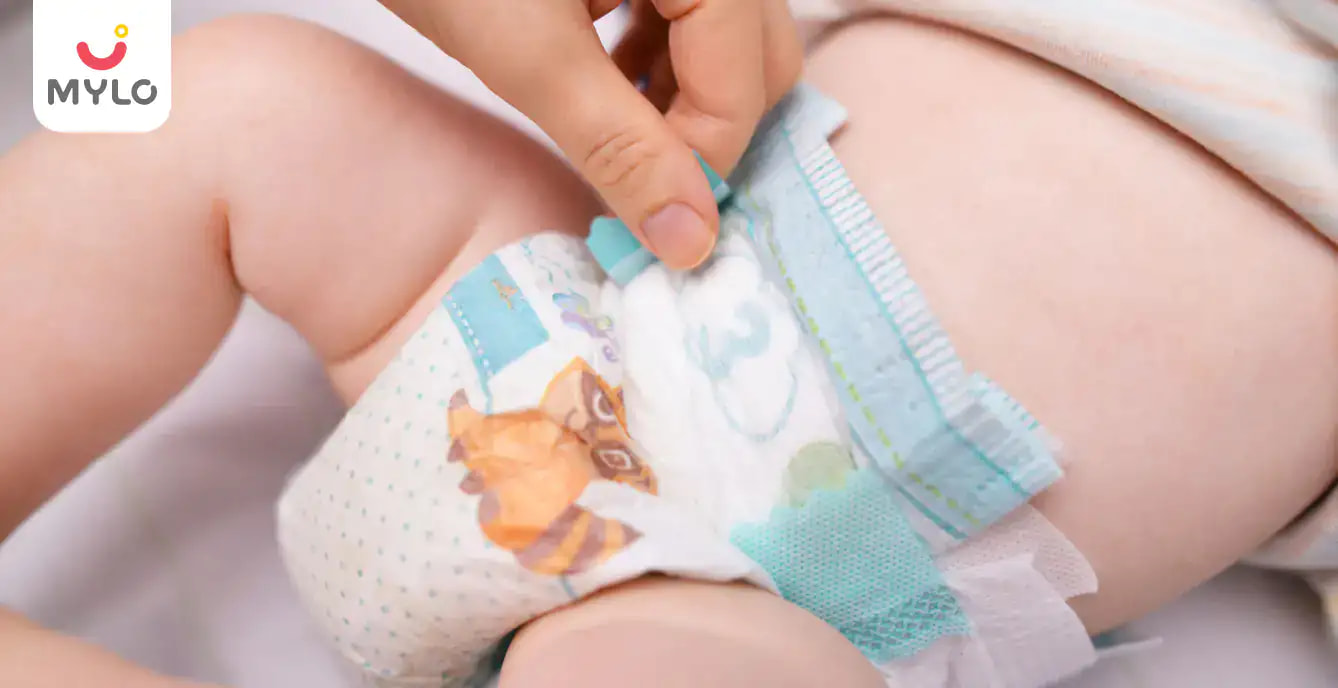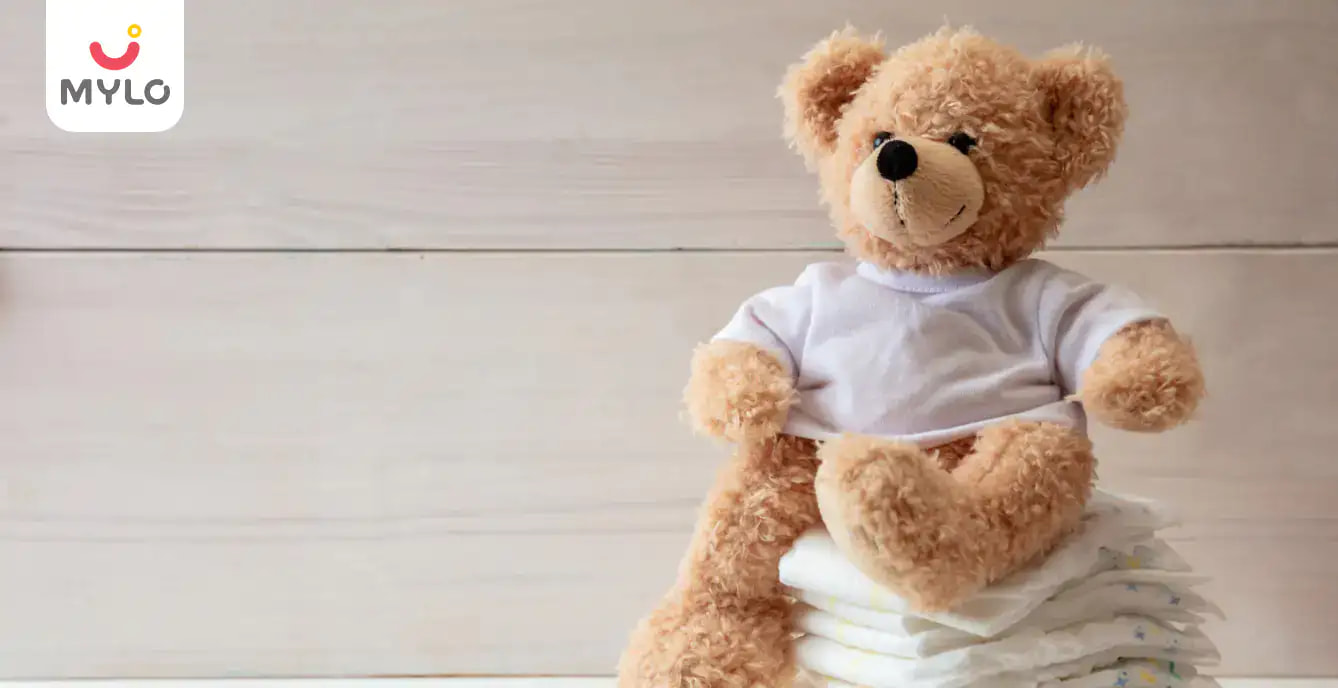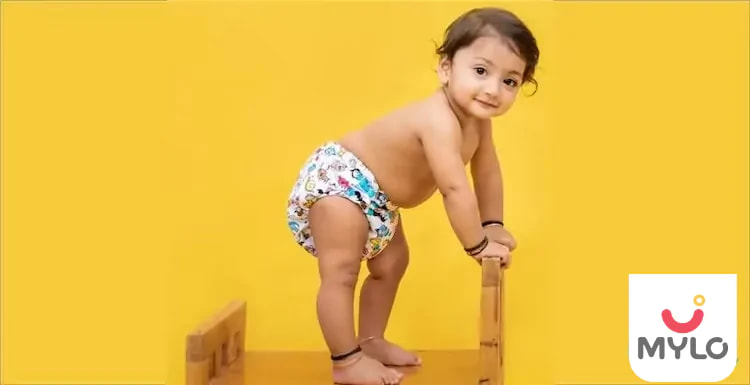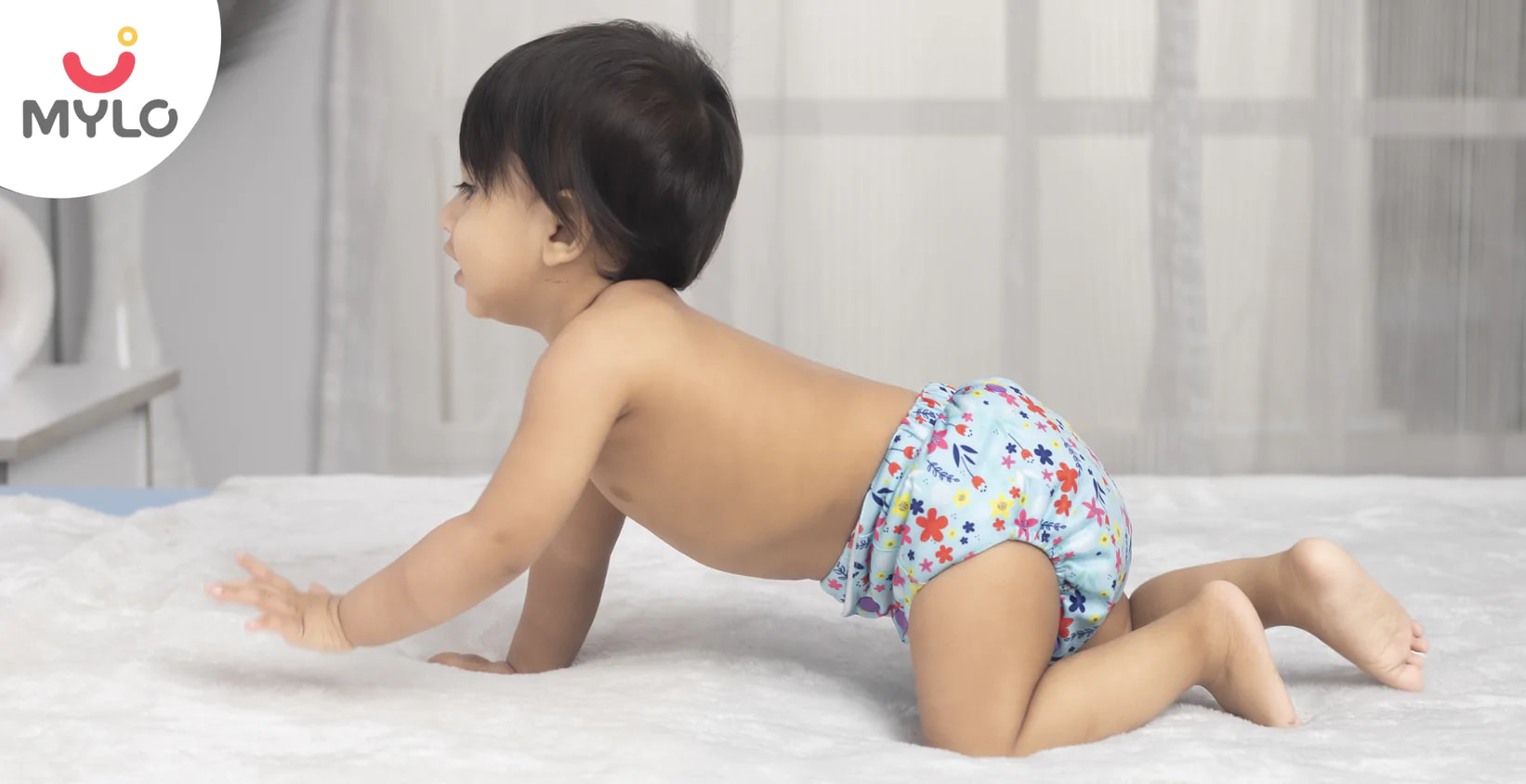Home

Diapering

Cloth Diaper vs Disposable: Which is Best for Your Baby?
In this Article
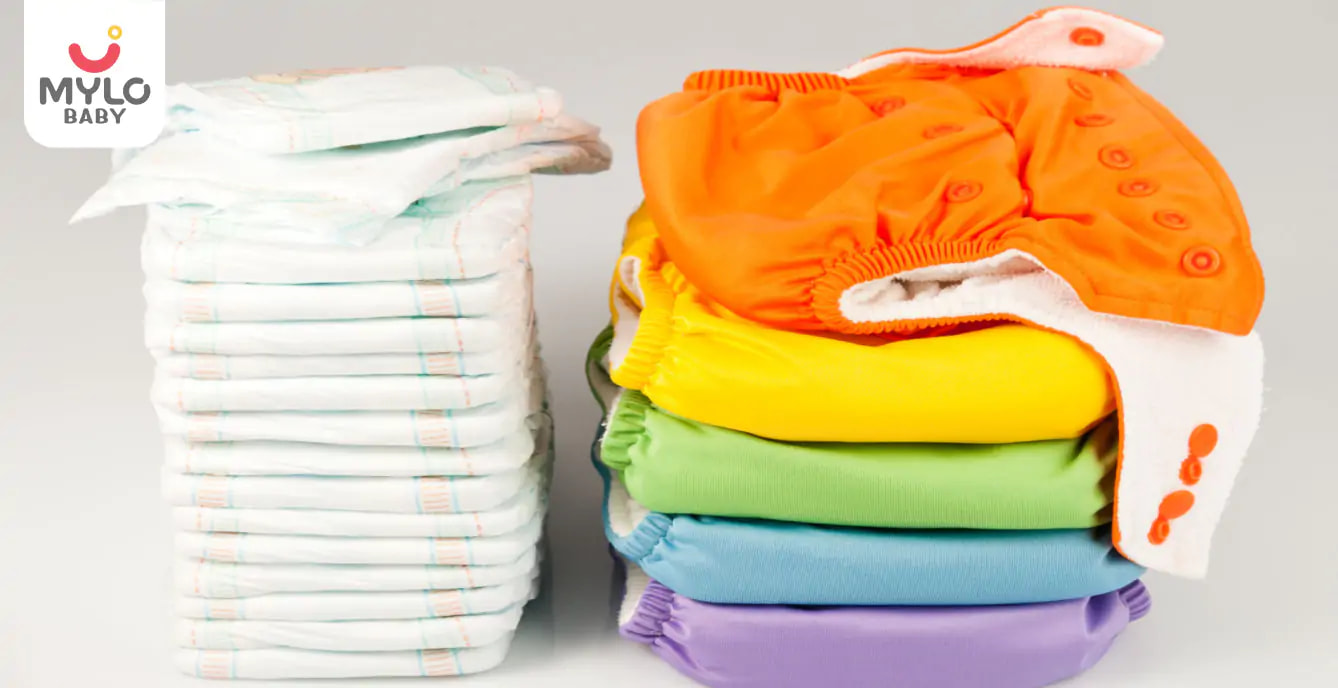
Diapering
Cloth Diaper vs Disposable: Which is Best for Your Baby?
Updated on 3 November 2023
Cloth diaper vs disposable - that is the question that many new parents face when deciding what's best for their little ones. Both options have their pros and cons, and choosing the right one can be overwhelming. Disposable diapers offer convenience, but they are not environmentally friendly and can be expensive in the long run. Cloth diapers, on the other hand, are eco-friendly and cost-effective, but they require more maintenance. In this article, we'll explore the pros and cons of cloth diapers as well as disposable diapers to help you choose between the two.
What are Cloth Diapers?
Cloth diapers are made of natural fabrics and come in a variety of attractive designs and prints. A cloth diaper usually features a waterproof cover or outer layer and an absorbent insert or inner layer. Some inserts are attached to the cover while others fit into an outer pocket. A cloth diaper is more like an investment as it can be washed and reused multiple times.
What are Disposable Diapers?
Disposable diapers are single-use diapers made of a soft liner, an absorbent core & pad and a waterproofing top sheet. Thin and lightweight, disposable diapers help to keep your baby clean and comfortable for long hours. Disposable diapers are ideal for travel and social events. You can change disposable diapers every 4-6 hours or whenever they are too wet or dirty to be worn.
You may also like: How Often Should You Change Baby’s Diaper?
Pros of Disposable Diapers
1. Disposable diapers are convenient and easy to change because of the strips attached to the back panel that fastens in the front. Nowadays, pant-styled diapers are also available to make the experience even better. Pick a diaper size according to your baby’s weight and age for the best fit.
2. Traveling with disposable diapers is easier, too, because you can just toss dirty diapers without having to carry them back home.
3. Additionally, you’ll be changing fewer diapers a day as disposable diapers are super-absorbent, have an inner liner that soaks moisture, and rarely leak.
4. They may also cause fewer diaper rashes because they're great at absorbing moisture.
You may also like: Things to Remember While Choosing Disposable Diaper Pants for Your Baby
Cons of Disposable Diapers
1. No studies show that the chemicals (like dioxin), dyes, and gels used in disposables cause harm. However, some babies may be allergic to these types of diapers, which may result in more diaper rashes.
2. If you pull too hard, the tabs on some of the disposable diapers may easily rip.
3. Additionally, disposable diapers aren’t the most environmentally safe way to manage your baby’s poop as they account for 3.4 million tons of landfill waste annually and don’t decompose.
4. The high absorbency in disposable diapers can also make potty training harder because toddlers are less likely to feel wet and uncomfortable.
Pros of Cloth Diapers
1. Available in fabrics like cotton, terry cloth, or flannel, a cloth diaper can come either as pre-folded pieces of cloth liners or as an all-in-one (a diaper and cover that looks similar to a disposable diaper).
2. While cloth diapers demand a greater initial investment, they’re way cheaper than disposables in the long run.
3. And, in case you’re worried about the toxic dyes and gels used in disposable diapers, then using a cloth diaper is a more natural way of diapering.
4. Plus, the fact that a cloth diaper is less absorbent than disposable diapers means more diaper changes (a disadvantage), but it may mean fewer diaper rashes in the long run (an advantage).
5. The cloth diapers come in several prints and colors to choose from, unlike disposable diapers.
You may also like: Top 5 Benefits of Making Your Baby Wear Free Size Reusable Cloth Diapers
Cons of Cloth Diapers
1. Cloth diapers can get messy sometimes. However, a cloth diaper with a disposable liner makes it easier to clean.
2. And, they require a little extra effort to change unless you use the all-in-ones (which are more expensive).
3. You’ll be doing extra laundry as well, which means higher water and electricity bills.
4. And, unless you’re using disposable diapers outdoors, you’ll probably have to carry home a few poopy (and smelly!) diapers.
5. Avoid keeping your baby in a dirty cloth diaper for longer hours as it may lead to diaper rashes because of trapped moisture.
However, investing in a cloth diaper for your baby could be a pocket and eco-friendly option as it is reusable and doesn't end up in a landfill. The cloth diaper price may seem higher for the first time, but it is not a regular expense, unlike disposable diapers. Cloth diapers can help you save a sum of around Rs.20,000 a year.
You may also like: Debunking the Top 8 Myths About Diapering with Cloth Diapers
Cloth Diaper vs Disposable: Which is the Right Choice for You?
Choosing out of disposable diapers and washable cloth diapers could be challenging. As a beginner, you can try using both. For example, you can use cloth diapers for the daytime and disposable diapers during the night or while travelling. Once you get hands-on with the usage, you can switch to anything you find the best.
FAQs
1. Is it safe to use disposable diapers?
Using disposable diapers is generally safe for babies as long as they're free of harmful chemicals, fragrances or dyes and are changed on time and in the correct manner.
2. What are the pros and cons of cloth diapers?
On the one hand, cloth diapers are cheaper in the long run, can result in fewer diaper rashes, and may make potty training easier. They are also reusable, making them environmentally friendly and having resale value. On the other hand, they require more diaper changes, laundry, and maintenance.
The Bottomline
In conclusion, the decision between cloth diaper vs disposable ultimately boils down to personal preference and individual family needs. Both options have their own set of advantages and disadvantages. Ultimately, parents should weigh the pros and cons, consider their lifestyle and values, and choose the option that aligns best with their needs and priorities. Whether it's cloth or disposable, what matters most is ensuring the comfort and well-being of your little one.
Trending Articles
how to deal with pregnancy stretch marks | ovulation meaning | double marker test | normal delivery tips
Popular Articles
doppler scan in pregnancy | severe back pain during pregnancy | when to start solid food for babies | if you have irregular periods when is the best time to take a pregnancy test

Mylo Baby Diaper Pants (S) Size – 12-Hour Leak-Proof Protection for Happy Babies
Lightweight | Rash Free | 12 Hours Protection | ADL Technology
₹ 423

4.4
(89655)
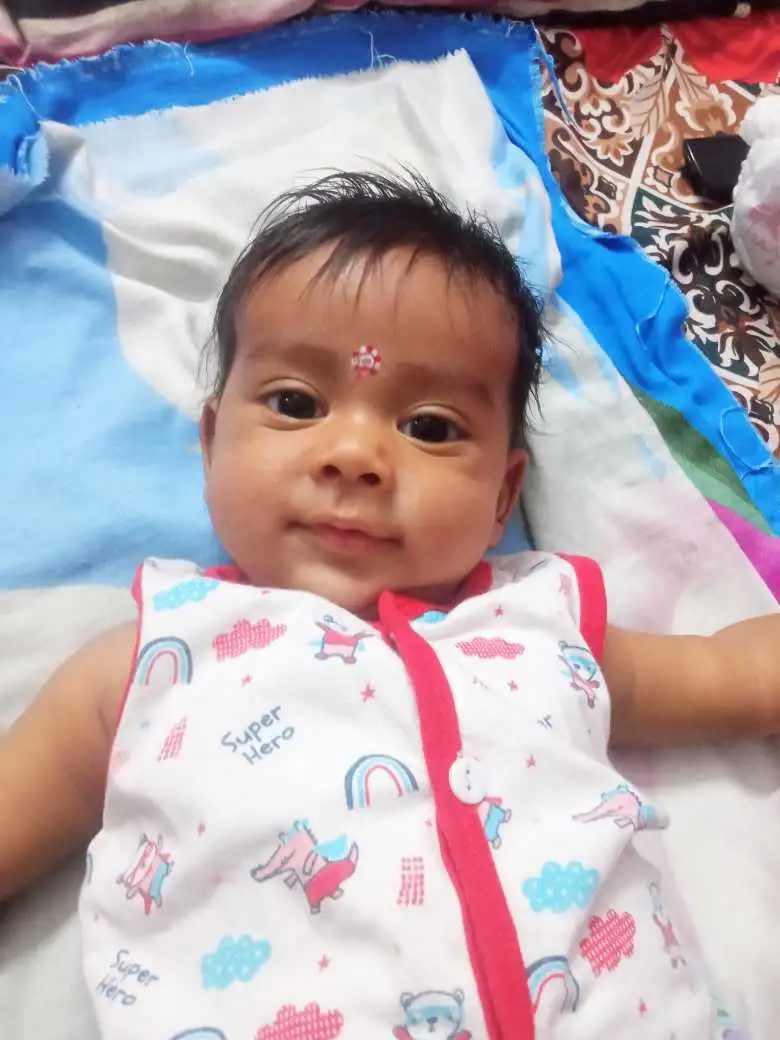

108850 Users bought



Written by
Anupama Chadha
Anupama Chadha, born and raised in Delhi is a content writer who has written extensively for industries such as HR, Healthcare, Finance, Retail and Tech.
Read MoreGet baby's diet chart, and growth tips

Related Articles
Related Topics
RECENTLY PUBLISHED ARTICLES
our most recent articles

Diet & Nutrition
গর্ভাবস্থায় আলুবোখরা: উপকারিতা ও ঝুঁকি | Prunes During Pregnancy: Benefits & Risks in Bengali

Diet & Nutrition
গর্ভাবস্থায় হিং | ঝুঁকি, সুবিধা এবং অন্যান্য চিকিৎসা | Hing During Pregnancy | Risks, Benefits & Other Treatments in Bengali

Women Specific Issues
স্তনের উপর সাদা দাগ: লক্ষণ, কারণ এবং চিকিৎসা | White Spots on Nipple: Causes, Symptoms, and Treatments in Bengali

Diet & Nutrition
গর্ভাবস্থায় পোহা: উপকারিতা, ধরণ এবং রেসিপি | Poha During Pregnancy: Benefits, Types & Recipes in Bengali

Diet & Nutrition
গর্ভাবস্থায় মাছ: উপকারিতা এবং ঝুঁকি | Fish In Pregnancy: Benefits and Risks in Bengali

Diet & Nutrition
গর্ভাবস্থায় রেড ওয়াইন: পার্শ্ব প্রতিক্রিয়া এবং নির্দেশিকা | Red Wine During Pregnancy: Side Effects & Guidelines in Bengali
- ইনার থাই চ্যাফিং: কারণ, উপসর্গ এবং চিকিৎসা | Inner Thigh Chafing: Causes, Symptoms & Treatment in Bengali
- গর্ভাবস্থায় ব্রাউন রাইস: উপকারিতা ও সতর্কতা | Brown Rice During Pregnancy: Benefits & Precautions in Bengali
- Velamentous Cord Insertion - Precautions, Results & Safety
- Unlock the Secret to Flawless Skin: 7 Must-Have Qualities in a Face Serum
- Unlock the Secret to Radiant Skin: How Vitamin C Serum Can Transform Your Complexion
- Gender No Bar: 10 Reasons Why Everyone Needs a Body Lotion
- Unlock the Secret to Radiant Skin How to Choose the Perfect Body Lotion for Your Skin Type
- Top 10 Reasons to Apply a Body Lotion After Every Bath
- Communication in Toddlers: Milestones & Activities
- How to Improve Vocabulary for Toddlers?
- A Comprehensive Guide to Understanding Placenta Accreta
- Vulvovaginitis in Toddlers Causes, Symptoms and Treatment
- A Comprehensive Guide to Understanding Cerebral Palsy in Children
- Bitter Taste in Mouth During Pregnancy: Understanding the Causes and Remedies


AWARDS AND RECOGNITION

Mylo wins Forbes D2C Disruptor award

Mylo wins The Economic Times Promising Brands 2022
AS SEEN IN
















- Mylo Care: Effective and science-backed personal care and wellness solutions for a joyful you.
- Mylo Baby: Science-backed, gentle and effective personal care & hygiene range for your little one.
- Mylo Community: Trusted and empathetic community of 10mn+ parents and experts.
Product Categories
baby carrier | baby soap | baby wipes | stretch marks cream | baby cream | baby shampoo | baby massage oil | baby hair oil | stretch marks oil | baby body wash | baby powder | baby lotion | diaper rash cream | newborn diapers | teether | baby kajal | baby diapers | cloth diapers |



